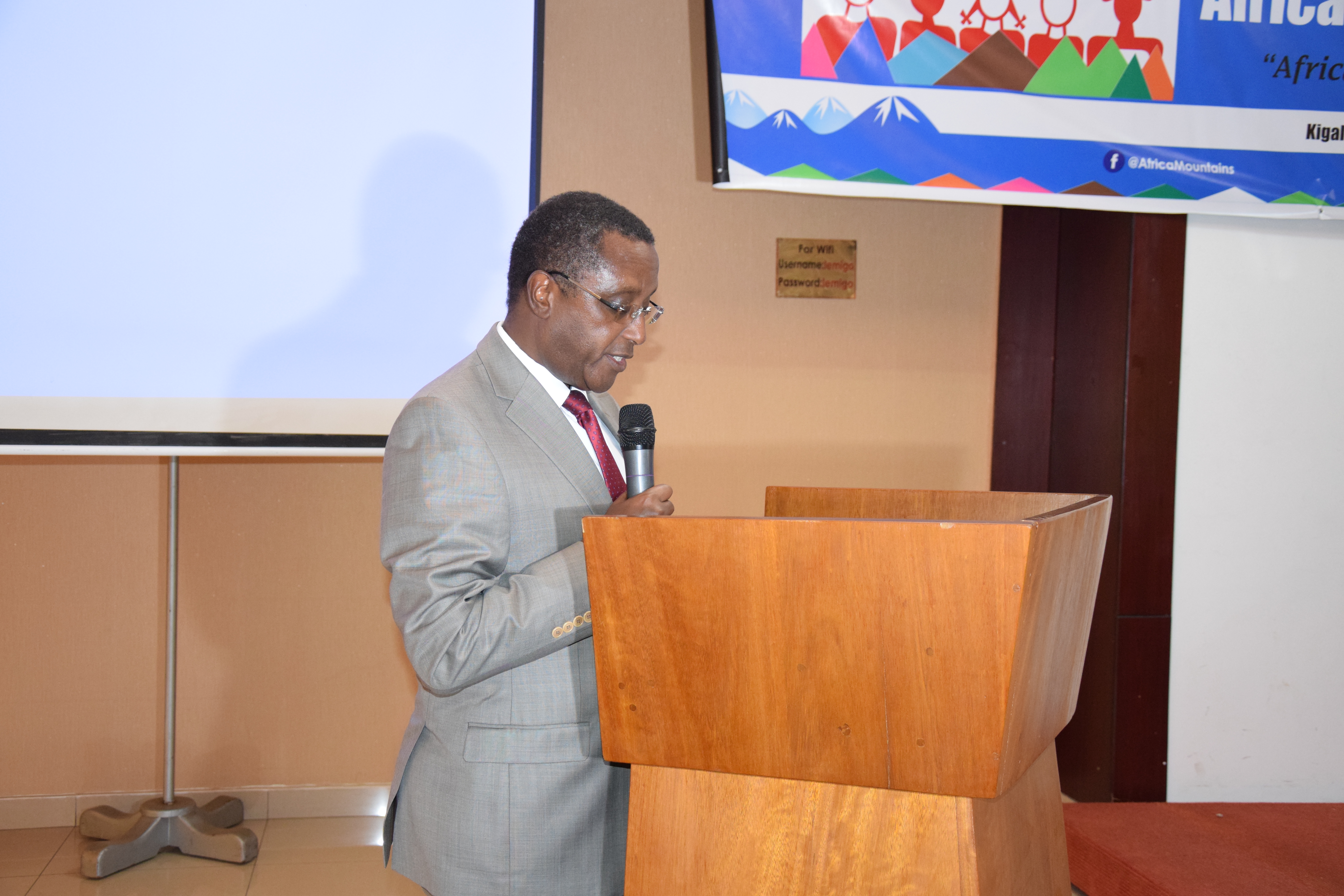

As the host of the 2nd Africa Regional Mountain Forum that was held in Kigali on 12-14 September 2018, Rwanda pledges to support Sustainable Mountain Development (SMD) initiatives in the country and develop legal instruments to mainstream SMD into the overall national development agenda. This was announced by Hon. Dr Vincent Biruta, the Rwanda’s Minister of Environment while opening the Forum (#ARMF_2018) which received the participation of more than 120 people from all corners of the African continent. Hon Biruta saluted the effort and leadership of organizers of the forum and partners including the Albertine Rift Conservation Society (ARCOS Network); the East African Community (EAC); the Swiss Agency for Development and Cooperation; the United Nations Environment Programme (UNEP); the Water for Growth Programme (a joint initiative between the Government of Netherlands and the Government of Rwanda), International Union for Conservation of Nature (IUCN) and the Ministry of environment, Republic of Rwanda, for providing leadership and coordination of mountain issues in Africa. As explained by Dr Sam Kanyamibwa, Executive Director of ARCOS Network, in the spirit of Mountain Partnership, the Africa Regional Mountain Forum is a type II initiative, bringing together representative from Government, civil society, academia, private sector and everybody to get together and discuss issues of common interest. Dr Kanyamibwa also went on explaining how this Africa regional Mountain Forum is more than just a meeting. He said, “ARMF is not just meetings but it is about also generating knowledge, it is about capacity building, it is about supporting actions and engagement in advocacy, as we did in Conference of party in Peru four years ago. This ARMF gives an opportunity to discuss the progress of the implementation of Sustainable Mountain Development Agenda by different stakeholders and share experiences on how mountains are contributing to sustainable development agenda.” During the first Africa Regional Mountains Forum that was held in Arusha, in Tanzania in 2014; one of the resolutions designated ARCOS as interim secretariat of the forum and Africa Mountain Partnership Champions Committee to act as interim steering committee. This resolution was endorsed by Africa Ministerial Conference on Environment (AMCEN). Building on those achievements of the first African Regional Mountain Forum, this second form established governance structures for the ARMF including the election of the new governance body and confirmation of the secretariat. African mountains provide vital goods and services, indispensable for human wellbeing and national, regional and global economic growth. Their invaluable importance as water towers, biodiversity hotspots, indicators of climate change and hubs of traditional indigenous knowledge offer a strategic opportunity to ensure sustainable development of African countries. However, African mountains are facing multiple challenges, mainly driven by fast growing population, unsustainable natural resources use which are worsened by climate change. This threatens the ability of mountain ecosystems to provide their essential goods and services and undermine livelihoods of mountain communities while affecting drastically the economic development of African countries. Sustainable mountain development in Africa is thus a key requirement for achieving sustainable development goals. As stressed by Rosalaura Romeo, Programme Officer, Mountain Partnership (FAO, Rome, Italy), we need to get together and advocate for mountains to be included in global, regional, national and local development agenda to ensure a better future for present and future generations.
Every year, Rwanda hosts the Kwita Izina event (Gorilla Naming Ceremony), an international event that has been celebrated since year 2005. The event embodies an intriguing story of how a country can leverage its natural capital sustainably in a chang
The World Mountain Forum is a biennial event that brings together stakeholders to discuss issues around Sustainable Mountain Development (SMD) and how it can be integrated in the global development agenda. This year’s edition will be hosted by the
It is now an accepted fact that the people who live in close contact with and depend upon natural ecosystems for their survival must be fully involved in all efforts to find solutions to conservation issues we are facing today. In mountain areas of
The Albertine Rift has recently been the centre of major developments in terms of infrastructure development projects, oil exploration, and many other projects in agriculture, energy and transport sectors. These projects may represent a potential thr
East Africa’s mountains support large human populations. The Ugandan side of Mount Elgon, for instance, has an average population density of 900 people per square kilometre. The Rwandan side of the Virunga massif also harbours the highest density o
Around 3 million hectares of forest are lost every year in Africa and 65 percent of land on the continent is affected by degradation resulting in an annual loss of 3 percent of GDP from soil and nutrient depletion. Most of these areas affected by deg